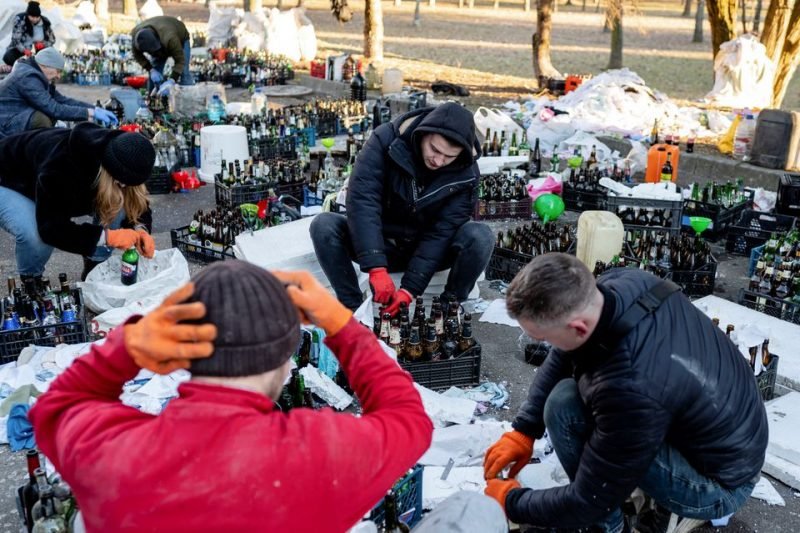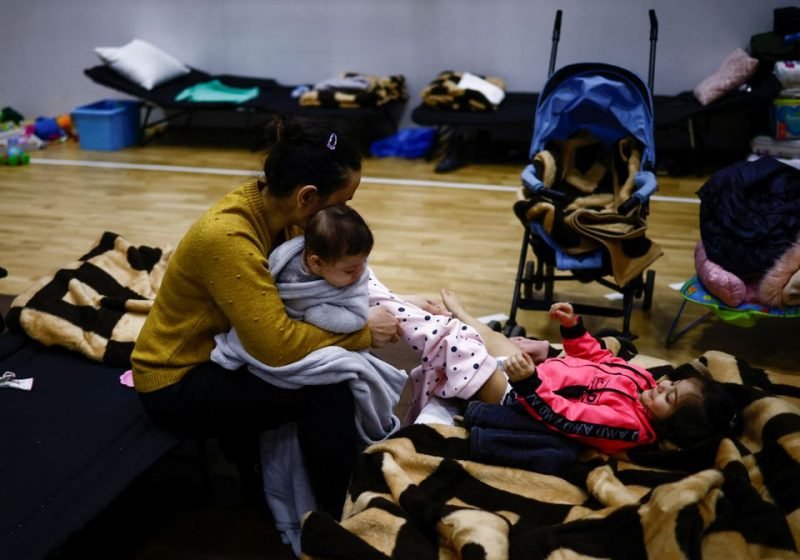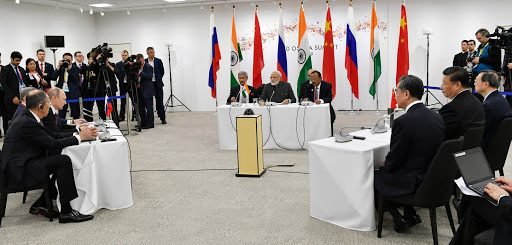Russia’s isolation intensifies as Ukraine fighting rages

Russia on Tuesday faced increasing isolation over its invasion of Ukraine, with fierce resistance on the ground denying President Vladimir Putin decisive early gains despite heavy shelling and a huge military convoy outside the capital, Kyiv.
Ceasefire talks between Russia and its southern neighbour held Monday failed to reach a breakthrough and negotiators have not said when a new round would take place.
Putin faces mounting international pressure for last week launching the biggest assault on a European state since World War Two, and the systemic impact of Western sanctions led to a near 30% collapse in the rouble on Monday before central bank intervention rescued the currency from its lows.
Staging a push for the capital, Russia has massed a convoy of armoured vehicles, tanks and other military equipment that stretches about 40 miles (64 km), U.S. satellite company Maxar said.
Ukrainian officials reported heavy fighting on several fronts and said a Russian bombardment of Kharkiv, the country’s second largest city, had killed dozens.
“What I think is pretty certain is Russia is off their timeline. I think they thought that within 72 hours they’d hold Kyiv,” U.S. Republican Senator Marco Rubio said after a classified briefing with top Biden administration officials.
The United States and its allies have imposed sanctions on Russia’s central bank, its top businesses, oligarchs and officials, including Putin himself, and barred some Russian banks from the SWIFT international payments system.
NATO ally Turkey delivered another blow to Moscow on Monday by warning warring countries not to send warships through its Bosphorus and Dardanelles Straits that separate the Black Sea from the Mediterranean, effectively bottling up Russia’s Black Sea Fleet.
Washington has ruled out sending troops to fight Russia or enforcing a no-fly zone as requested by Ukraine, fearing an escalation between the world’s top two nuclear powers.
But, the United States and its allies have instead promised military aid to Kyiv, as President Volodymyr Zelenskiy warned the capital was under constant threat.
“For the enemy, Kyiv is the key target,” Zelenskiy said in a video message late on Monday. “We did not let them break the defence of the capital, and they send saboteurs to us … We will neutralise them all.”
Zelenskiy said Russia, which calls its actions in Ukraine a “special operation”, was targeting a thermal power plant providing electricity to Kyiv, a city of 3 million people.
Human rights groups and Ukraine’s ambassador to the United States accused Russia of using cluster bombs and vacuum bombs. The United States said it had no confirmation of their use.
Russia says its actions are not designed to occupy territory but to destroy Ukraine’s military capabilities and capture what it regards as dangerous nationalists.
Fighting has raged around the port of Mariupol and in the eastern city of Kharkiv, where Ukrainian officials said Russian artillery attacks had killed dozens of civilians, including children. It was not possible to verify those figures.

Private sector pullout
More than 500,000 people have fled Ukraine, according to the United Nations refugee agency, setting off a refugee crisis as thousands await passage at European border crossings.
At least 102 civilians have been killed since the invasion started Thursday, but the real figure could be much higher, the U.N.’s human rights chief said.
Canada said it would ban imports of Russian crude oil, and U.S. Republican Senator Lindsey Graham said the Biden administration should target the Russian energy sector with sanctions. Oil and gas are Russia’s top export earners.
“We’re not using the energy sector as a weapon,” Graham told reporters. “We’re failing to hit Putin where it hurts the most.”
A stream of companies pulling out of Russia is expected to grow on Tuesday and deal further blows to the country’s economy.
Shell BP and Norway’s Equinor said they would exit positions in Russia.
Leading banks, airlines, and auto makers have cut shipments, ended partnerships and called Russia’s actions unacceptable, with more considering similar actions.
Mastercard said it had blocked multiple financial institutions from its payment network as a result of sanctions on Russia and Visa said it would take action too.
Moves to isolate Russia have extended to culture and sports, as well.
Three major studios, Sony, Disney and Warner Bros., said they would pause theatrical releases of upcoming films in Russia while FIFA and the International Olympic Committee moved to bar Russian teams and athletes from competing.
Putin, who takes pride in athleticism and is passionate about martial arts, had his honorary black belt from World Taekwondo stripped from him over the invasion, the group said.
Reporting by Aleksandar Vasovic in Kyiv; Natalia Zinets, Matthias Williams and Pavel Polityuk in Lviv; Kevin Liffey and Mark Trevelyan in London; and other Reuters bureaux including Moscow; Writing by Rami Ayyub and Lincoln Feast; Editing by Simon Cameron-Moore


















